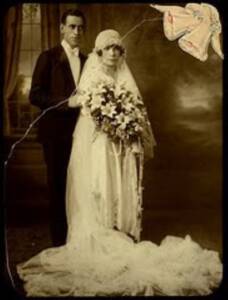The Stranger at Home You Retired With Wants The Key To Happy Retirement
“In the past few days, they had hurled at each other the kinds of accusations that couples make when they are on the brink of mutual destruction. They were bruised from the words that had been exchanged, and although they sat close to each other, their energy was quiet and heavy.”
This quote from a recent great read by Susan Dominus, captures my experience with many couples who have survived all the challenges of adult life and yet they’re getting stumped in retirement.

If you’re experiencing trouble in your marriage or with your partner after you retired and went home, you’re not alone. Our culture prepares us for retirement by encouraging financial and physical well-being. Americans are not prepared for the most important ingredient in a healthy and happy retirement, emotional balance and quality in significant relationships, particularly marriage.
The Health and Retirement Study, a sweeping national research project now in its 32nd year, found that an unhappy marriage predicts unhappiness in retirement better than decline in wealth or even health. John Gottman’s research has found that the quality of marriage before retirement is the single best predictor of contentment in retirement.
Couples in distress tend to turn to their partner and ask them to change so things can get better for themselves. Most marriage partners experience this as blame for the other person’s misery. When both people are equally confused and upset, this approach usually makes things worse.
It may be easy to look at one’s partner and ask them, “Who are you and why are you so different than you used to be?” It may not occur to that person to look at themselves and ask, “Who am I going to be now that I lost my major identity that I had at work, or raising the children or other engaging activities outside the home?”
People are simply not prepared to work on developing secondary identities as seniors with which to meaningfully organize their lives in retirement.
How To Salvage Your Happy Retirement With That Stranger You Live With?
- Get a good marriage counselor, one who understands how to transition into a retirement marriage.
- Wipe the slate of expectations clean. Start over and date your “stranger.” Dating may add some fun to your life. It can also remind you that when you first met each other, you practiced negotiated compromise. You respected each other and came collaboratively to a consensus about logistics such as when and where to meet and what to do on a date.
- To the best of your abilities, suspend the use of the word “we.” The “we” word presumes that one person can speak for both persons. It presumes established patterns and mitigates against change. When setting up a date with your spouse, it’s more respectful to say, “I would like to go where we went last time and do what we did together with each other last time. However, out of respect for you, who I’m just getting reacquainted with all over again, what’s your pleasure? What would work for you?”
- Sometimes couples resist this kind of homework because it seems so tedious. “We already know what we both like. I know him , he knows me because after all we’ve been together for decades.” Don’t be so sure. Quality marriage requires daily getting reacquainted with the micro changes going on with your partner. Otherwise, when you retire you may have a lot of catching up to do and that may feel overwhelming.
- Remember how you approached challenges early in your relationship. How did you handle the first year of marriage, the birth of each child, changes in jobs or health and financial challenges? Odds are you talked it out with each other and didn’t presume that how to deal with those first-time challenges could be taken for granted.
- With a fresh and open mind, design from the beginning your future together as retired people with equal input from each other. Chances are the plans you thought you had for retirement before you retired are outdated and not in touch with who your partner is now.

Retirement, if nothing else, is an opportunity to get acquainted with each other for the first time in a long time. That takes time, patient attention to details and mutual respect. Happy Retirement specialist, Paul W Anderson, PhD can help make that possible for you.





